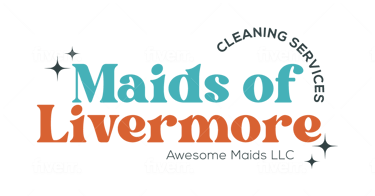New Customers - Save 10% Here Call or Text 925-264-9646
The 'No Shoes' Rule: Does It Really Make Your Home Cleaner?
Nambo A.
2/8/20253 min read


If you've ever visited a household where removing shoes at the door is the golden rule, you might have wondered—is it really necessary? Does adopting a “no shoes” policy actually contribute to a cleaner, healthier home, or is it just a cultural habit? Let's dive into the science behind this simple practice and explore its real impact on home hygiene.
The Science Behind the 'No Shoes' Rule
Your shoes go everywhere: public restrooms, sidewalks, parks, grocery stores, and more. Along the way, they pick up a surprising variety of dirt, bacteria, and even toxins. Here’s what the research says:
Bacteria Hotspots:
A study by the University of Arizona found that the average shoe harbors over 421,000 bacteria, including E. coli, which can cause intestinal and urinary tract infections.
These microbes can transfer easily to carpets and floors, where they linger far longer than on outdoor surfaces.
Toxins and Chemicals:
Shoes often carry residues from pesticides, fertilizers, and harmful chemicals found on streets and lawns.
Studies show these toxins can accumulate indoors, potentially affecting indoor air quality over time.
Allergens and Pollutants:
Pollen, mold spores, and dust cling to your footwear, contributing to indoor allergens that affect respiratory health.
Benefits of a No-Shoes Policy at Home
Cleaner Floors, Less Frequent Cleaning:
Without outdoor dirt tracked inside, you'll notice less dust and grime buildup, reducing the need for constant vacuuming and mopping.
Improved Indoor Air Quality:
Minimizing dirt, allergens, and pollutants from shoes helps maintain fresher, cleaner air indoors.
Longer-Lasting Flooring:
Shoes, especially with hard soles, can cause scratches, dents, and wear on hardwood, tile, and carpets. Going shoe-free helps preserve your flooring.
Healthier Living Environment:
Less exposure to bacteria, toxins, and allergens makes for a healthier home, especially for young children who play on the floor.
Common Misconceptions About the No-Shoes Rule
“My floors don’t look dirty, so it must be fine.”
Invisible bacteria and toxins don’t show up like visible dirt, but they’re still there.
“I wipe my shoes on the doormat, so that’s enough.”
Doormats help reduce surface dirt but don’t eliminate microscopic contaminants.
“It’s just a personal preference, not a hygiene issue.”
While it is personal, science supports real health benefits tied to reducing shoe-borne contaminants indoors.
How to Implement a No-Shoes Rule Effectively
Create a Welcoming Entryway:
Set up a designated shoe storage area with shelves or baskets.
Add a bench for easy shoe removal.
Provide Indoor Slippers:
Offer comfortable indoor slippers for family members and guests.
Consider having guest slippers available to encourage the habit without awkwardness.
Use Doormats (Inside and Out):
Place sturdy mats outside to catch debris and softer mats inside to capture any residual dirt.
Communicate the Policy Kindly:
A polite sign near the entrance can gently remind guests without feeling forceful.
When the No-Shoes Rule Isn’t Practical
While the no-shoes rule offers clear benefits, there are exceptions:
Elderly Individuals: Removing shoes may affect balance or mobility.
Medical Conditions: Some people require orthopedic footwear indoors for support.
Formal Gatherings: Adapt the rule flexibly during events where dress shoes are part of the attire.
In these cases, regular floor cleaning becomes even more essential.
Cleaning Tips to Support a Healthier Home
Whether or not you adopt a no-shoes policy, maintaining a clean environment is key:
Vacuum and Mop Regularly: Focus on entryways, hallways, and high-traffic areas.
Disinfect Floors Periodically: Especially if shoes are worn indoors, use a gentle disinfectant to reduce bacteria buildup.
Clean Doormats Weekly: Shake them out and vacuum to prevent dirt transfer.
Final Thoughts
So, does the no-shoes rule really make your home cleaner? Absolutely. Science shows it reduces bacteria, allergens, and toxins, creating a healthier living space with less effort. While it may not be practical for everyone all the time, adopting this habit where possible can significantly improve your home's cleanliness.
Want a deeper clean? Let Maids of Livermore handle the heavy lifting. Call or text 925-264-9646 to schedule your professional cleaning service today and enjoy a spotless, healthier home!
Mission
Bringing peace of mind with professional, reliable, and thorough home cleaning.
Contact
Subscribe
Email Us: Hello@MaidsOfLivermore.com
Call Us: 925-264-9646
© 2025. All rights reserved.
